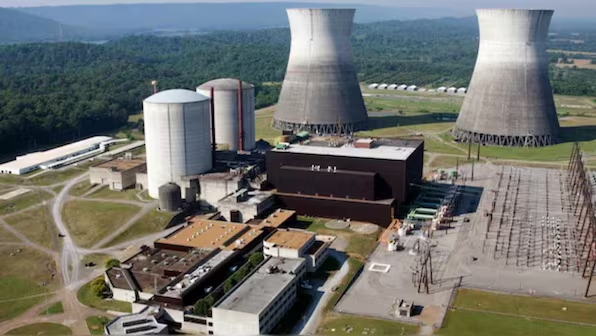According to a representative of the energy ministry, Ghana will choose a contractor by December to construct its first nuclear power station from among competitors which include China National Nuclear Corporation, France’s EDF, and the United States NuScale Power and Regnum Technology Group.
Robert Sogbadji, the deputy director for power in charge of nuclear and alternative energy, Russia’s ROSATOM and South Korea’s Kepco and its subsidiary Korea Hydro Nuclear Power Corporation were also vying for the contract, which was scheduled to last for the next ten years.
“Cabinet will approve the final choice. It can be one vendor or two nations; it will depend on the financial model and the technical details,” Sogbadji told Reuters on Monday.
The government issued a call for vendors, and 16 countries and businesses replied, according to Sogbadji. However, a technical committee of state agencies headed by the Ministry of energy reduced the list to the current five countries.
In the 1960s, Ghana began exploring the construction of a nuclear power facility, but a coup halted the project. With help from the International Atomic Energy Association, it brought the plan back to life in 2006 after a catastrophic power outage.
Similar to other African nations, Ghana is progressively exploring the potential of nuclear power to bridge supply gaps on a continent where more than 600 million people live without access to energy.
Both Burkina Faso and Uganda have agreements in place with China and Russia to build their first nuclear power plants. As part of their energy mix, Namibia, Kenya, and Morocco are also aiming to include nuclear power.
Amidst acute power shortages, South Africa, which runs the only nuclear reactor on the continent, plans to add 2,500 megawatts (MW) of power from the resource. According to Sogbadji, Ghana wants to increase its electricity mix to include 1,000 megawatts of nuclear power by 2034.
Energy authority in the West African nation, which is now experiencing power shortages, has 5,454 MW of installed capacity, of which 4,483 MW is available.
Ghana, a country that exports gold, oil, and cocoa, anticipates using nuclear power as its foundation for faster and more comprehensive industrialization while expanding energy exports via the West Africa Power Pool to countries like Benin, Ivory Coast, and Togo.
According to Sogbadji, the government has already acquired a location big enough to house five reactors. It would be preferable, he continued, to “build, own, operate and transfer” with space for local equity holding.

